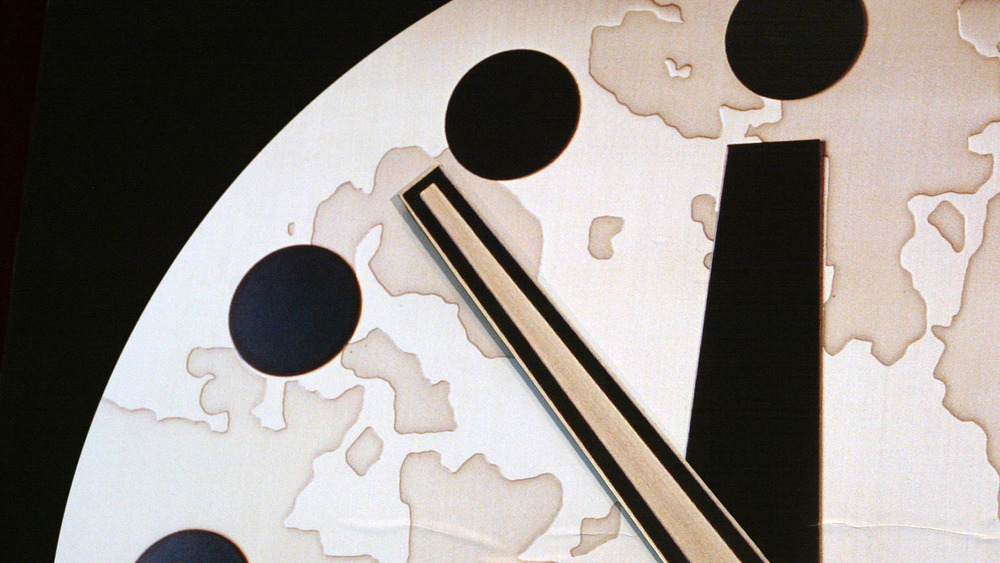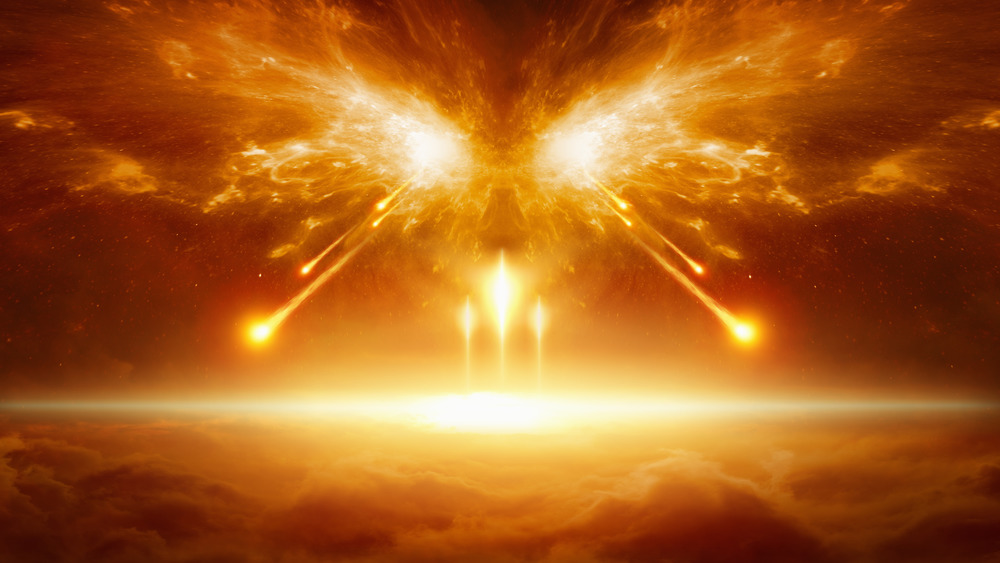What The Latest Doomsday Clock Update Really Means
Humanity, there are 100 seconds before midnight when the world as we know it ends.
The Doomsday Clock, the symbolic countdown to humanity's demise, remained at 100 seconds, exactly where it was last year. The Bulletin of the Atomic Scientists, which sets the clock, kept society 100 seconds shy of the apocalypse as the world continues to grapple with the COVID-19 pandemic, accelerating nuclear development, and the failure of governments to adequately address climate change.
"The existential threats of nuclear weapons and climate change have intensified in recent years because of a threat multiplier: the continuing corruption of the information ecosphere on which democracy and public decision-making depend. Here, again, the COVID-19 pandemic is a wake-up call. False and misleading information disseminated over the internet — including misrepresentation of COVID-19's seriousness, promotion of false cures, and politicization of low-cost protective measures such as face masks — created social chaos in many countries and led to unnecessary death. This wanton disregard for science and the large-scale embrace of conspiratorial nonsense — often driven by political figures and partisan media — undermined the ability of responsible national and global leaders to protect the security of their citizens," according to the Bulletin's statement.
Okay, so the clock doesn't point to the end of the world, but it does serve as a wake-up call for governments to enact policies to avert these crises.
The closest to midnight it's ever been
At 100 seconds to midnight, this is the closest the clock has come to the proverbial end since it began in 1947, explained NBC. While the clock often fluctuated based on the crisis the planet faces, it often became a stark reminder that decisions of governments and people have consequences.
The Bulletin's president, Rachel Bronson, said their goal this year is to pressure leaders to combat misinformation, listen to scientists, and ensure their citizens have access to healthcare.
But it isn't all doom and gloom. The scientists pointed to some bright spots, including the executive orders signed by President Joe Biden to rejoin the Paris Climate Agreement. They also set out some goals for leaders that may push the clock back. These involve reducing reliance on nuclear power, working with the World Health Organization to reduce biological risks, and reenact the agreement between the United States and Iran.
The scientists hope a global reset could eventually put the clock back. It may not be indeed the end of the world, but it is close.

